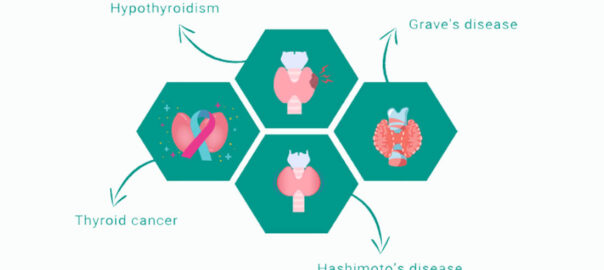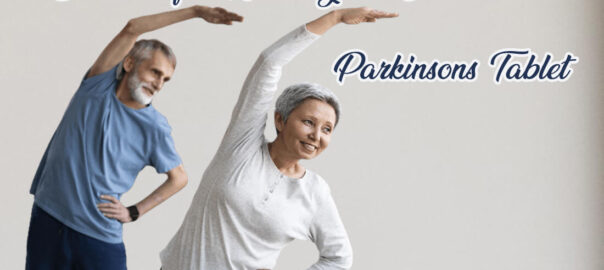
A chronic and progressive neurological disorder, Parkinson’s Disease impacts millions of people globally. This condition can manifest with various symptoms, such as tremors, stiffness, and challenges in walking and balance. Managing Parkinson’s Disease can be challenging, not only for patients but also for caregivers. However, there are tips and strategies along with parkinsons disease medicine that can help cure the condition effectively. This post will provide essential information and advice on managing Parkinson’s Disease effectively. Whether you’re a patient or caring for someone with Parkinson’s Disease, these practical tips and lifestyle changes can be beneficial in addressing the challenges.
Understanding Parkinson’s Disease
A progressive neurological disorder, Parkinson’s Disease disrupts the regulation of movement. This condition develops due to the slow decline in dopamine neurons, especially in the substantia nigra part of the brain. This depletion of dopamine leads to a range of motor and non-motor complications. It can further impact an individual’s ability to move smoothly, maintain balance, and carry out everyday tasks. Several interventions are aimed at managing Parkinson’s Disease and improving the overall quality of life for those affected.
Strategies for Managing Parkinson’s Disease
Various strategies can help individuals manage their symptoms and increase their quality of life. One of the most important tips to cure Parkinson’s Disease is to make some lifestyle changes. These include incorporating regular exercise, practising relaxation techniques, and adjusting one’s diet. Exercise is particularly helpful in reducing stiffness, improving balance, and promoting better overall health. Engaging in relaxation practices, such as yoga and meditation, aids in reducing stress and tension.
Managing Parkinson’s Disease involves a multi-faceted approach such as parkinsons medicine, lifestyle modifications, and support. Here are different strategies that can help in managing Parkinson’s Disease:
1. Physical Therapy:
Engage in regular physical therapy sessions to improve mobility, balance, and overall physical function. Physical therapists can design specific exercises and therapies to address Parkinson ”’s-related movement difficulties, reduce stiffness, and maintain muscle strength.
2. Occupational Therapy:
Occupational therapists can provide strategies and adaptive techniques to manage daily activities and maintain independence. They can help with tasks such as dressing, eating, writing, and using assistive devices to support functional abilities.
3. Speech Therapy:
Individuals with Parkinson’s Disease commonly face issues related to speech and swallowing. Speech therapists can provide exercises and techniques to enhance speech clarity, improve swallowing function, and address issues like drooling or difficulty chewing.
4. Regular Exercise:
Regularly exercise to improve strength, flexibility, and balance. Activities such as walking, swimming, cycling, and tai chi are beneficial for individuals with Parkinson’s. Consider working with a personal trainer experienced in Parkinson’s cure exercises to create a safe and effective workout routine.
5. Nutrition Matters:
Maintain a well-balanced diet rich in fruits, vegetables, whole grains, and lean proteins. Adequate nutrition can support overall health, provide necessary nutrients, and help manage potential side effects of medications.
6. Supportive Therapies:
Explore complementary therapies like yoga, meditation, acupuncture, and massage, which may help alleviate symptoms, reduce stress, and improve overall well-being. While these therapies may not directly impact the progression of Parkinson’s Disease, they can be beneficial as supportive measures.
7. Mindfulness and Stress Management:
Find healthy ways to manage stress, as stress can worsen symptoms. Engage in activities promoting relaxation, such as deep breathing exercises, mindfulness, meditation, hobbies, or leisure time in nature.
Most importantly, changes in diet can also be beneficial, such as avoiding processed foods and incorporating more fresh fruits and vegetables. Additionally, medicine of parkinson’s disease can help manage and promote overall health. Patients with Parkinson’s can enhance their well-being by integrating these tips into their daily routines.
Lifestyle Advice for Parkinson’s Disease Patients
Stay Hydrated: Dehydration can exacerbate some Parkinson’s symptoms. Make a conscious effort to drink enough water throughout the day.
Balanced Sleep Schedule: Prioritize a consistent sleep schedule to minimize sleep disturbances common in Parkinson’s Disease. Establish a calming bedtime ritual for enhanced sleep quality.
Fall Prevention: People with PD often face significant concerns related to falls due to their balance and gait problems. Take steps to minimize fall risks, including:
- Remove tripping hazards from your home.
- Use handrails and grab bars in high-risk areas like bathrooms and staircases.
- Consider physical therapy to improve balance and coordination.
Stay Informed: Continuously educate yourself about Parkinson’s Disease. Understanding your condition and staying informed about recent research developments can empower you to actively participate in your treatment plan and make informed decisions about your health.
Maintain a Positive Attitude: While Parkinson’s Disease presents challenges, maintaining a positive outlook can significantly impact your overall well-being. Focus on what you can do, and celebrate your accomplishments, no matter how small they may seem.
Stay Socially Engaged: Sustaining an active social circle and discussing your experiences with individuals who comprehend your difficulties can provide empowerment and alleviate isolation. Connect with friends, family, and support groups to stay engaged and mentally stimulated. Joining a Parkinson’s Disease support group can provide emotional support and valuable insights.
Living with Parkinson’s Disease requires a holistic approach encompassing physical, emotional, and lifestyle considerations. By adopting these lifestyle strategies and accessing supportive networks, people living with this condition can optimize their quality of life and retain their independence for an extended duration. Remember that Parkinson’s Disease is highly individualized, so it’s essential to tailor your lifestyle choices and management strategies to your specific needs and preferences.
Conclusion
Parkinson’s Disease is a challenging condition, but individuals can lead fulfilling lives with the right strategies and support. Parkinson’s Disease, when managed correctly, can alleviate symptoms and improve overall well-being. Useful tips & techniques, including exercise, therapy, staying active and seeking support from loved ones, along with parkinsons disease medicine, are essential for managing the physical and emotional challenges of this Disease. Additionally, following lifestyle advice can further enhance the quality of life for Parkinson’s Disease patients. Remember that each person’s journey with Parkinson’s Disease is unique, so stay socially informed and engaged to develop a personalized plan that meets your specific needs and goals. By taking a proactive approach to managing your condition, you can continue to enjoy life to the fullest.










